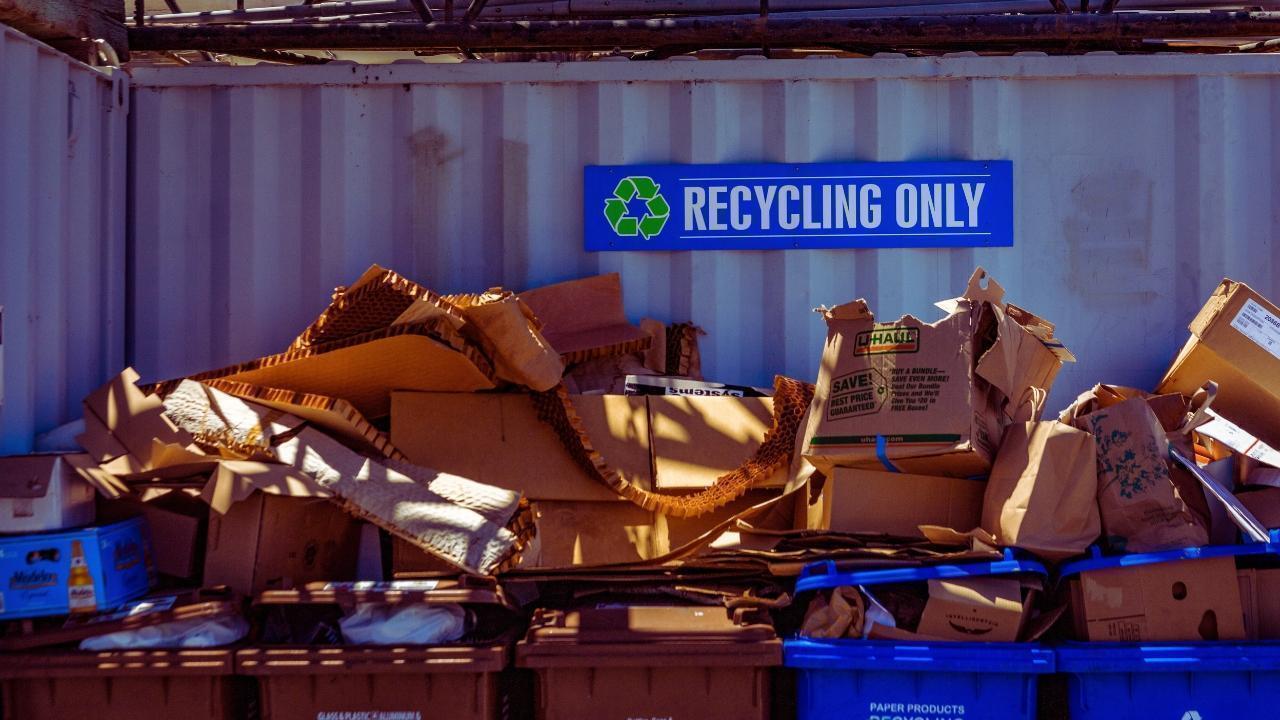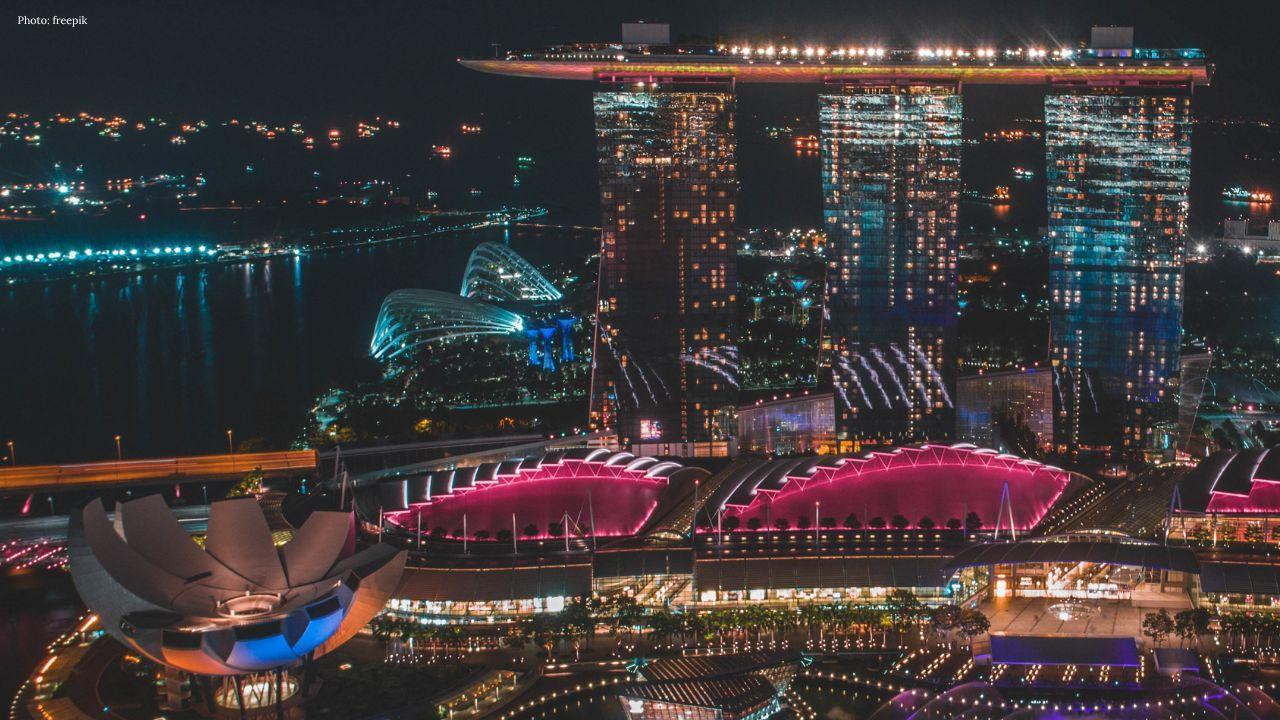You have not yet added any article to your bookmarks!

Join 10k+ people to get notified about new posts, news and tips.
Do not worry we don't spam!

Post by : Anis Farhan
Urban Asia is drowning in waste. With megacities expanding at record speeds and consumption rates climbing higher every year, municipal waste systems are collapsing under pressure. From the back alleys of Bangkok to the high-rises of Jakarta, cities are producing more trash than they can process. But amid this bleak landscape, something extraordinary is happening — a new generation of tech-driven recycling startups is emerging, and they’re redefining what it means to clean up.
These young ventures aren’t just collecting garbage. They're using artificial intelligence, blockchain, and IoT to digitize waste management, create value chains from discarded materials, and empower communities with scalable, sustainable solutions. What was once an afterthought in urban planning is now becoming a key pillar of smart city development in Asia.
Asia is home to 60% of the global population, and it produces almost half of the world’s plastic waste. Countries like the Philippines, India, and Indonesia are major contributors to marine plastic pollution, often due to underdeveloped waste infrastructure and poor segregation practices.
This crisis, however, is also a major economic opportunity. According to the World Bank, improving waste management in Asia could unlock a $40 billion market by 2030. It’s this lucrative potential that’s driving investors, entrepreneurs, and impact organizations to fund the region’s waste-tech revolution.
Startups like RecyGlo (Myanmar and Malaysia), Waste4Change (Indonesia), and Blue Planet Environmental Solutions (Singapore) are leading the charge. Their solutions range from digital waste tracking systems to AI-based sorting machines and smart bins that communicate with cloud platforms.
In India, Recykal has built a full-circle waste commerce platform where households and businesses can schedule pickups and track the lifecycle of their waste. The startup uses blockchain to ensure transparency and accountability in the recycling supply chain, attracting both CSR-focused corporates and environmentally conscious consumers.
Meanwhile, Indonesia’s Gringgo Tech combines machine learning and mobile apps to assist informal waste collectors — often called “scavengers” — in identifying recyclable materials and connecting them with recycling centers. By enabling digital inclusion, Gringgo empowers those at the bottom of the waste pyramid while improving collection efficiency.
Asia’s informal recycling sector — the armies of waste pickers who salvage, sort, and resell discarded materials — is crucial to urban recycling systems, but they’ve historically been invisible in policy discussions and supply chains.
Startups are now changing that. Many of them are building inclusive platforms that offer incentives, health benefits, and recognition to informal workers. This not only elevates their social status but also significantly increases recovery rates and quality control.
In Vietnam, ReForm Plastic is working with informal collectors to turn plastic waste into construction materials. In Bangladesh, BD Recycle provides waste workers with training and digital tools to improve efficiency and negotiate better rates with suppliers.
As governments across Asia push forward with smart city agendas, waste-tech solutions are becoming integral to urban planning. Singapore, for instance, has integrated pneumatic waste collection systems in its newer housing developments, and startups like SembWaste are using AI for fleet management and route optimization.
In Thailand, the city of Chiang Mai is piloting AI-enabled trash sorting robots developed by local startups in collaboration with universities. These robots identify, sort, and process waste in real-time, reducing manual labor and human exposure to hazardous materials.
These innovations are not only improving sanitation but also helping cities achieve zero-waste goals, reduce landfill dependence, and cut down on greenhouse gas emissions from unmanaged waste.
One of the biggest challenges recycling startups face isn’t just technology or funding — it’s behavioral change. In many Asian cultures, especially in rural or peri-urban communities, waste disposal is still largely considered a municipal responsibility. Educating people to segregate waste at source, participate in recycling initiatives, and reduce single-use plastic consumption is a slow, uphill task.
That’s why many startups are blending tech with community outreach. Apps like TONTOTON in Cambodia and Vietnam reward users for recycling by offering points redeemable for services or donations to local causes. In the Philippines, social enterprise The Plastic Flamingo organizes community-driven beach cleanups where locals can trade collected plastic for building materials made from recycled goods.
The message is clear: recycling isn't just a civic duty — it's becoming a social movement.
In 2024 alone, recycling and waste-tech startups in Asia raised over $320 million in funding, according to DealStreetAsia. Impact investors and ESG funds are flocking to startups that promise scalable solutions for circular economy challenges.
Startups offering carbon credits through verified waste offsets are also tapping into global climate finance markets. By diverting thousands of tons of waste from landfills, they’re eligible for carbon credits that can be sold to polluting industries, creating new revenue streams.
Governments, too, are supporting these ventures with innovation grants, incubator programs, and favorable policy frameworks. India’s Swachh Bharat Mission 2.0, Malaysia’s Zero Single-Use Plastics roadmap, and Indonesia’s national plastic action plan all provide startup-friendly ecosystems.
Despite the momentum, hurdles remain. Fragmented regulations, poor enforcement, lack of data, and resistance from entrenched industry players often slow progress. Waste segregation at source remains patchy, and low oil prices can make virgin plastic cheaper than recycled alternatives.
But the underlying trend is irreversible. As climate concerns mount, consumer preferences shift, and ESG pressures build, the future of waste in Asia is digital, data-driven, and circular. The region’s recycling startups are no longer on the sidelines — they’re at the forefront of a sustainability revolution.
In turning trash into tech, these innovators are not just cleaning up cities — they’re creating cleaner economies, smarter communities, and a greener future for all.
The content of this article is intended for informational and editorial purposes only. While every effort has been made to ensure the accuracy of the information presented, Newsible Asia does not guarantee the completeness or timeliness of data regarding companies, startups, or government initiatives. Readers are advised to consult official sources or experts before making any investment, business, or environmental decisions based on this content. All views expressed are those of the writer and do not necessarily reflect the official stance of Newsible Asia or its partners.










Sumo Rocked by New Bullying Scandal as Terunofuji Admits Abuse
Retired grand champion turned stablemaster reports himself to authorities for violent conduct toward

Son of Oil Tycoon Riza Chalid Sentenced to 15 Years in $17 Billion Corruption Scandal
Jakarta Corruption Court convicts Muhammad Kerry Adrianto Riza in high‑profile Pertamina graft case

Marina Bay to Celebrate Disney Adventure With Fireworks & Fun
UOB Marina Bay Sands & Singapore Tourism Board join Disney Cruise Line for a 2-month nautical celebr

Rashmika Mandanna and Vijay Deverakonda Tie the Knot in Grand Udaipur Wedding
The beloved actors celebrated their Telugu and Kodava heritage with traditional ceremonies at ITC Me

Raja Ampat Welcomes Back Endangered Zebra Sharks
Scientific collaboration and community education drive rare species repopulation in the Coral Triang

Tomorrowland Thailand Set for Full‑Scale Asian Debut in December 2026
Thailand to host world‑renowned electronic music festival in Pattaya, expected to draw tens of thous